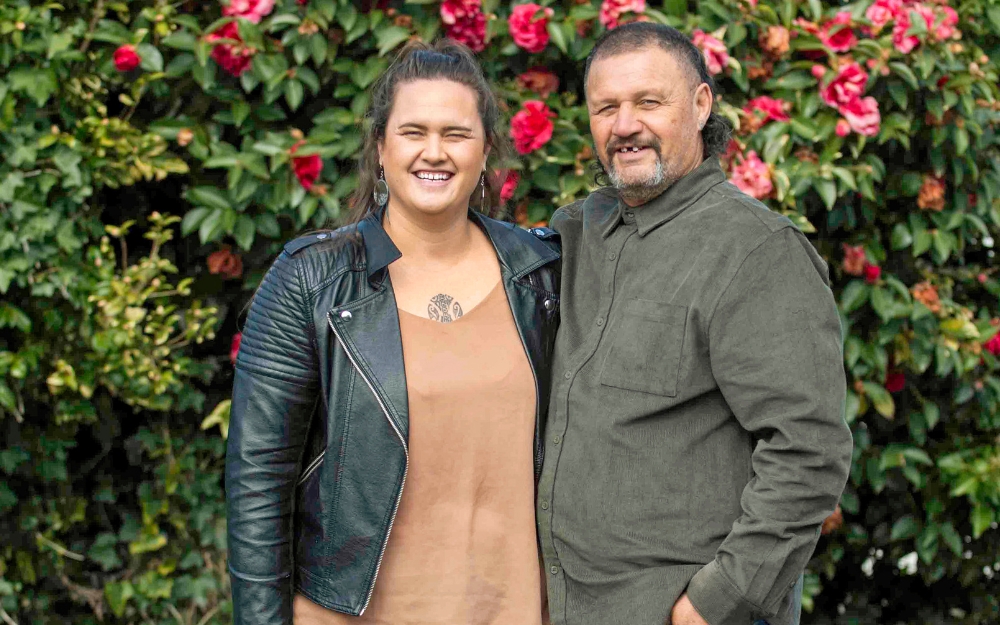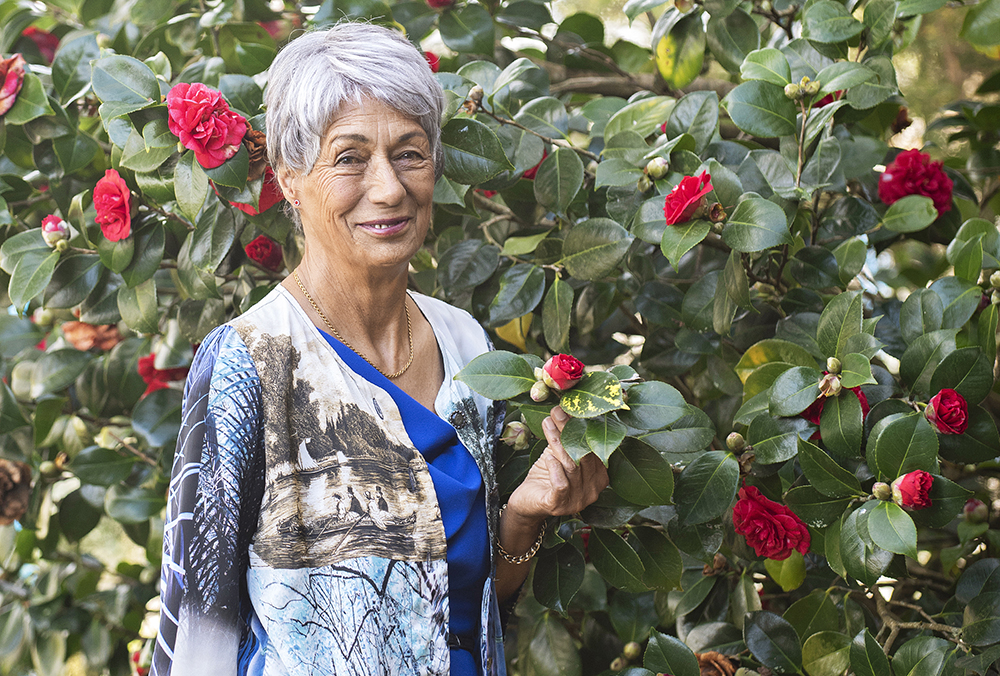When Hamilton woman Lani Catherall decided to study her Māori culture last year, she was astonished to discover her father Brian Catherall – who was sent to a boys’ home as a child – has about 20 siblings.
Lani’s mission to understand their roots also landed her at the doorstep of a grandfather she’d never met, who hadn’t spoken to his son Brian in more than 30 years.
“Growing up, I had no idea where we whakapapa to [come from], so last year, I decided to find out for my dad,” says postage freight investigator Lani, 34, who is the oldest of six children.
“Part of it was connecting with te reo Māori and during my journey, I’ve found our lineage is massive. It’s been beautiful but overwhelming.”
Lani was raised near Wellington by her Pākehā mother, before moving to Hamilton seven years ago, where she lives with her partner Tuku Marie Rangitaawa, 26. As a child, she spent school holidays visiting Rotorua to stay with Brian, 56, a logging truck driver.
“I didn’t think about being Māori much during my school years, but when I got older and had to fill out application forms, they’d say to state your ethnicity,” explains Lani. “When I selected Māori, it usually came up with a line where you put your iwi.”

Partner Tuku has been a rock during Lani’s journey.
In her early twenties, Lani began asking her father questions about their culture and his mother, who was Māori, but Brian knew very little since she left when he was young.
The only details he had were from his birth certificate, which included her name, Madge Ashford, her birth date and her birthplace of Whanganui.
“My dad is a man of few words, and I’ve always been a bit wary of asking him about his childhood because I know he wasn’t treated right and has held a lot of mamae [hurt] from it,” shares Lani.
“I know that when he and his brother were taken to a boys’ home, Dad’s grandmother from his father’s side, who was Pākehā, found him a year later and picked him up to live with her.”
When Lani was working as a postie in Porirua a decade ago, she saw a letter with her last name on it and asked her dad if he knew who it was. She was gobsmacked to hear it was her grandfather, who Brian hadn’t spoken to in three decades. Despite being told not to bother visiting him, Lani and her sister went around, only to find he wasn’t home.
“We didn’t go back again, but as time went on, my siblings also started wondering where our Māoridom came from,” recalls Lani. “I felt I had to take the reins and dig deeper into our history.
“When I moved to Hamilton and met my partner, her family gave me a better insight into the Māori realm because they’re quite fluent in te reo and they encouraged me to do a course.”
Part of her te reo study involved looking into her whakapapa, so Lani took to the internet to start her own investigation. Knowing her nan came from Whanganui, she googled marae in the area. It led her to Facebook, where she created a post on a marae’s page, explaining who she was and her nan’s name. A woman reached out saying Lani’s nan was her dad’s sister. From there, other whānau with the surname Ashford responded.
When Lani and Brian stopped in to meet his first cousin on their way through Taihape one day, they learnt their iwi is Te Āti Haunui-a-Pāpārangi and found out about another cousin in Auckland with a whakapapa book on their family’s history.

Getting to know whānau has been “beautiful but overwhelming” for Lani and dad Brian (left).
“I looked at the book and it’s massive!” Lani laughs. “We found out Dad’s a sibling of around 20, all from Nan, who had multiple marriages. Every time I tell him something new, all I get is, ‘Mean, daughter’. But he has been really open to it and loves it.”
When Lani told Brian she was visiting her grandfather, who is in his late seventies, to find more about her nan, he surprisingly agreed to join her. They spent hours there, having lunch and looking at old photo albums.
“My koro [grandfather] had a smile on his face the entire time and showed Dad around his garden,” tells Lani. “We didn’t find anything else out about Nan, but the reconnection between them took over. As much as there may be disputes or mamae, I wanted to try to look past that all because at the end of the day, we’re family.”
Next, along with continuing to study te reo, Lani plans to visit her marae, Otoko and Kaiwhaiki, in Whanganui and to search for her dad’s siblings.
“I’m proud to be Māori and I see myself completely differently now,” she enthuses. “This journey has given us all a sense of belonging. I’ve loved finding out where we come from, our iwi, our waka and our maunga [mountain]. All of that has been missing for a very long time.”
 Tracey Scott
Tracey Scott

